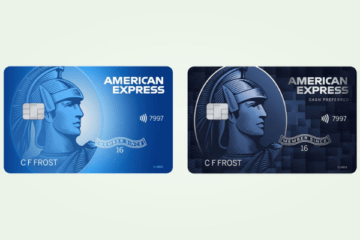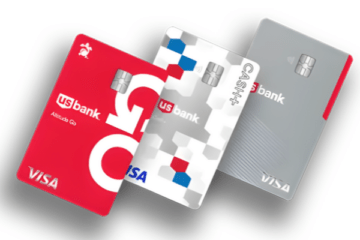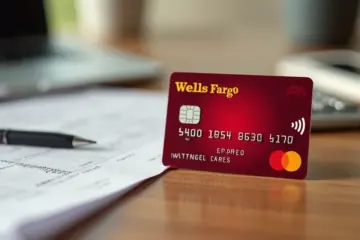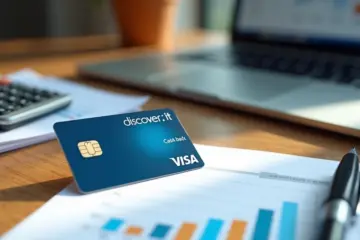Credit for people with bad credit: How to get it even if your credit score is bad
Understanding the Challenge of Bad Credit
Why does a bad credit score make it so hard to get loans or credit cards? What can you do to overcome these hurdles and take charge of your financial future? If these questions have ever crossed your mind, you’re not alone. Understanding bad credit is key if you’re looking to improve your financial health.
Advertisement
You’ll find out how a low credit score affects your ability to get credit, and discover alternative options that might be available to you. Learn practical ways to boost your credit score and make smart financial choices. By the end of this article, you’ll be ready to tackle credit challenges with newfound confidence.
Advertisement

Can You Still Get a Credit Card with Bad Credit?
Having a bad credit score can feel discouraging, but it doesn’t mean you can’t get a credit card. There are options designed specifically for people looking to improve their credit. Let’s explore some of them.
One of the best choices for rebuilding credit is a secured credit card. This type of card requires a cash deposit, which usually sets your credit limit. For instance, if you deposit $300, that’s your credit limit. It protects lenders and gives you a chance to prove you’re reliable. Over time, using this card responsibly can boost your credit score.
Anúncios
Another option is credit cards with higher interest rates or fees. While they might cost more, they are often easier to get. If you pay off your balance every month, you can avoid high-interest charges and still improve your credit.
- Secured Credit Cards: These cards need a deposit and help in building credit with regular use.
- High-Interest Rate Cards: Easier to obtain and useful for credit improvement if managed smartly.
- Store Credit Cards: Retail store cards can be a good starting point, often with simpler approval terms.
- Credit Unions: Credit unions provide cards with better terms for those with low credit scores.
Choosing the right card is important, but so is using it wisely. Ask yourself, are you ready to take steps to rebuild your credit? Pay off the balance each month or spend only what you can repay. The goal is to show lenders you can handle credit responsibly.

Exploring Alternative Credit Options
Facing a bad credit score can feel like a big hurdle, especially when you need a loan. But don’t worry, there are still ways to get credit and manage your finances. Let’s talk about some smart options you might not have considered.
One great option is to check out credit unions. They’re not like big banks. Instead, they’re member-focused and often more willing to help people with poor credit. Here’s why they might be your best bet:
- Lower Interest Rates: Credit unions usually have lower interest rates, making your monthly payments easier to handle.
- Flexible Terms: They often offer loans with terms that can be adjusted to fit your budget and needs.
- Community Focus: Unlike big banks, credit unions are about helping their members succeed, which can make getting a loan less stressful.
Another path to consider is borrowing from online lenders. With the growth of technology, many online platforms now offer loans to people with all kinds of credit scores. Here’s what makes them appealing:
- Variety of Options: Online lenders offer many different loan amounts and terms, so you can find something that works for you.
- Quick Processing: The application process is often fast, and you might get your money quicker than with traditional banks.
- Easy Comparisons: You can compare different offers side-by-side online, helping you find the best deal with ease.
As you explore these options, it’s crucial to compare the terms and conditions of each offer. Here’s what to look out for:
- Interest Rates: Check the APR to know the full cost of the loan.
- Hidden Fees: Watch for any extra costs like origination fees or penalties for paying off the loan early.
- Loan Terms: Make sure the loan duration and payment plan suit your financial situation.
In short, dealing with a poor credit score doesn’t mean you’re out of options. Consider credit unions and online lenders as viable solutions. By taking the time to compare the terms and conditions, you can find a loan that not only meets your needs but also helps you improve your credit over time.

How to Improve Your Credit Score for Better Offers
Boosting your credit score might seem tough, but with some smart planning, you can do it. Here are a few simple tips to get you started.
First, always pay your bills on time. Late payments can hurt your score a lot. Try setting up automatic payments or reminders to help. Think of it like this: if you forget to pay, you might face extra fees and a lower score. Staying on top of payments can save you money and build trust with lenders.
Next, try to lower your debt. Use less of your credit limit, ideally under 30%. For example, if you have a credit limit of $1,000, keep your balance under $300. Paying down debt can seem hard, but you can use methods like the snowball approach, tackling smaller debts first, or the avalanche method, focusing on debts with high interest first.
Also, check your credit report for mistakes. Even small errors can hurt your score. You can get a free report from each of the three main credit bureaus every year. Look them over carefully and report any errors you find. Imagine finding a mistake that’s been dragging your score down without you knowing!
Finally, remember that improving your credit score takes time. Small changes now can lead to big improvements later. By being patient and sticking to these tips, you’ll gradually see your score rise. This opens up better financial opportunities in the future.
Conclusion: Taking Steps Towards Better Credit
You’ve discovered some smart ways to handle credit even with a low credit score. Remember, by understanding your options and taking action, you can steadily improve your financial situation. Exploring alternative credit solutions and boosting your credit score are key steps toward a better financial future.
Now it’s time to reflect: Are you ready to start your journey to better credit? What steps can you take today to make a positive change in your finances? Use the insights you’ve gained, and don’t hesitate to seek additional help or resources. Take action now and move closer to achieving your financial goals!





